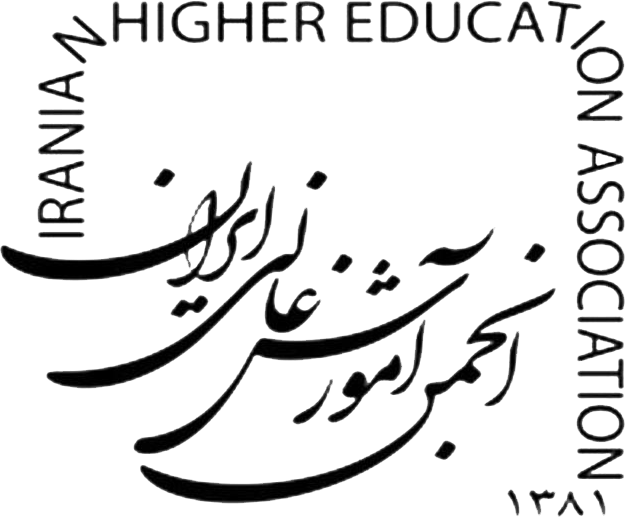Volume 16, Issue 4 (2025)
ihej 2025, 16(4): 68-91 |
Back to browse issues page
Download citation:
BibTeX | RIS | EndNote | Medlars | ProCite | Reference Manager | RefWorks
Send citation to:



BibTeX | RIS | EndNote | Medlars | ProCite | Reference Manager | RefWorks
Send citation to:
Jahani A, Salehi K. Identifying Peer Review Problems in Journals of Iranian Ministry of Science: Issues and Solutions. ihej 2025; 16 (4) :68-91
URL: http://ihej.ir/article-1-2086-en.html
URL: http://ihej.ir/article-1-2086-en.html
1- M.Sc. Student in Psychometrics (Assessment and measurement), Allameh Tabataba'i University, Tehran, Iran.
2- Associate Professor, Department of Methods, Educational Planning and Curriculum Development; Faculty of Psychology and Education, University of Tehran, Tehran, Iran. ,keyvansalehi@ut.ac.ir
2- Associate Professor, Department of Methods, Educational Planning and Curriculum Development; Faculty of Psychology and Education, University of Tehran, Tehran, Iran. ,
Abstract: (1762 Views)
Objective: Peer review is one of the most essential tools for ensuring the quality of scientific articles, playing a fundamental role in evaluating research and maintaining the academic credibility of journals. However, in domestic journals, this process faces numerous challenges that can negatively affect the quality and integrity of published articles. This study aims to identify the issues present in the peer review process of domestic journals and propose solutions for improvement.
Method: This study employed a qualitative approach and phenomenological method. Data were collected through semi-structured interviews with 12 key informants who had experience in submitting and reviewing academic articles. Colaizzi’s method was used for data analysis, and the extracted concepts were categorized into key thematic categories.
Results: Findings indicated that the challenges in the peer review process of domestic journals can be categorized into four main themes: “ethical issues in peer review” including bias in judgment, structural problems in the review process, low-quality reviews, and deficiencies in validation and indexing; “technological infrastructure issues” including weak user interface design and poor system performance and speed; “educational and research policy issues” including lack of motivation among reviewers and excessive emphasis on publication quantity over quality; and “transparency issues” including ambiguity in financial policies and subjective evaluation criteria.
Conclusion: The peer review process in domestic journals requires reforms in policy-making, technology, research ethics, and transparency. Enhancing the reviewers' incentive system, increasing transparency in peer-review policies, upgrading technological infrastructure, and establishing unified and fair standards for accreditation and quality assurance are among the proposed solutions to improve the quality of manuscript review in academic journals. Implementing these suggestions can enhance the quality of published articles, boost the credibility of domestic journals, and pave the way for scientific authority.
Method: This study employed a qualitative approach and phenomenological method. Data were collected through semi-structured interviews with 12 key informants who had experience in submitting and reviewing academic articles. Colaizzi’s method was used for data analysis, and the extracted concepts were categorized into key thematic categories.
Results: Findings indicated that the challenges in the peer review process of domestic journals can be categorized into four main themes: “ethical issues in peer review” including bias in judgment, structural problems in the review process, low-quality reviews, and deficiencies in validation and indexing; “technological infrastructure issues” including weak user interface design and poor system performance and speed; “educational and research policy issues” including lack of motivation among reviewers and excessive emphasis on publication quantity over quality; and “transparency issues” including ambiguity in financial policies and subjective evaluation criteria.
Conclusion: The peer review process in domestic journals requires reforms in policy-making, technology, research ethics, and transparency. Enhancing the reviewers' incentive system, increasing transparency in peer-review policies, upgrading technological infrastructure, and establishing unified and fair standards for accreditation and quality assurance are among the proposed solutions to improve the quality of manuscript review in academic journals. Implementing these suggestions can enhance the quality of published articles, boost the credibility of domestic journals, and pave the way for scientific authority.
Keywords: Phenomenology, Peer Review Challenges, Peer Review, Scientific Writing, Scientific journals
Type of article: Research |
Subject:
Special
Received: 2025/02/3 | Accepted: 2026/03/19 | ePublished ahead of print: 2025/07/2
Received: 2025/02/3 | Accepted: 2026/03/19 | ePublished ahead of print: 2025/07/2
Send email to the article author
| Rights and permissions | |
 |
This work is licensed under a Creative Commons Attribution-NonCommercial 4.0 International License. |





